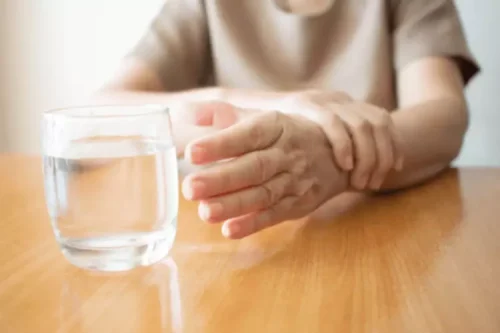
But alcohol tolerance is more complicated than just being “a lightweight” or not. In fact, alcohol intolerance is a metabolic disorder that doesn’t have anything to do with how many drinks you can down before your beer goggles switch on. The process starts with an enzyme in your liver, called alcohol dehydrogenase (ADH), which converts ethanol into acetaldehyde. Your body holds on to the nutritive parts of what you eat and drink, but, otherwise, what goes in must also come out.
Final Thoughts on Why You Get a Stuffy Nose After Drinking
This will help reduce your nose’s contact with the drink and make it less likely to trigger a sneeze. If you find that warm drinks make you sneeze, try chilling them before you drink them. As it does, it causes your blood vessels to dilate or widen. And while the only way to fully prevent hangxiety and hangovers is to abstain from alcohol, she says it helps to go into social situations in the best possible headspace.
- Your skin’s reaction can help them learn if you have an allergy.
- Track allergy symptoms and prepare for a visit with a healthcare provider.
- If someone believes they have an alcohol allergy or intolerance, they should stop drinking alcoholic drinks and visit their healthcare provider for testing and advice.
- The only surefire way to prevent a hangover is to abstain from drinking, he says.
What to expect from your doctor
The immune system usually produces antibodies to fight harmful substances in the body. However, in people with an alcohol allergy, the system mistakenly produces antibodies to attack alcohol following exposure to the substance, triggering various symptoms. If you have this variant, it causes your body to produce less active ALDH2.
Alcohol allergies

Other studies have found that egg whites and gelatin are often used in the filtration processing of wine. “You can get wheezing and asthma symptoms or hives,” said Bassett. Those who already suffer from asthma seem to be more vulnerable,” he said. She sneezing after drinking alcohol has tried different types of alcohol — vodka, whiskey or tequila — but she breaks out in hives and a fever.
- Sudden onset of symptoms may also be caused by a newly developed intolerance.
- “Alcohol and sulphites tend to evaporate away during cooking, so the potential for intolerances is certainly reduced,” Dr Watts says.
- These are just a few examples of how changes in your health can turn alcohol into an unexpected problem.
- If people do not produce enough of this enzyme, they may not break down histamine efficiently, which may lead to intolerance symptoms.
Why Do I Experience Nasal Congestion After Drinking Alcohol?

While it can sometimes be harmless, there are times when the underlying cause could be more serious. In particular, if you have developed an intolerance or allergy to wine, then this could lead to more severe reactions such as anaphylaxis. Symptoms of a wine allergy include rashes, why do i sneeze when i drink alcohol nasal congestion, wheezing or a tingling sensation around the mouth and throat. As a result, their bodies produce inactive ALDH enzymes that are unable to properly break down the alcohol into acetic vinegar.

Ways To Stop Drinking Alcohol
More likely, you’re allergic to or sensitive to a particular ingredient in that beer. As with why do i sneeze when i drink alcohols, this issue comes down to a depletion of enzymes — in this case, enzymes that are required to metabolize alcohol in the liver. The doctor may refer the person to an allergy specialist for further testing and treatment. Anaphylaxis is a life threatening condition that involves a series of symptoms, such as a rash, low pulse, and shock. When it comes to how alcohol impacts asthma, the conclusions are less set-in stone. Researchers are still trying to uncover the exact link, but some studies suggest alcohol makes asthma symptoms worse and can even lead to asthma attacks.
A person experiencing a severe allergic reaction should go to the emergency room immediately. Alcohol allergy symptoms can range from mild, such as an itchy mouth or eyes, to severe, including vomiting or anaphylaxis. The immune system overreacts to this exposure in the body, treating alcohol as a threat.

